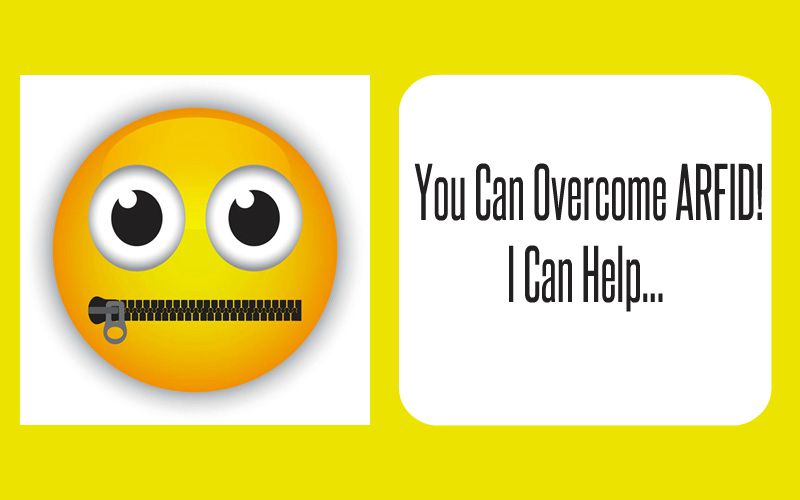The consequences of ARFID can diminish the overall quality of life and can even shorten the duration of life. People who suffer from ARFID, also known as avoidant restrictive food intake disorder (formerly selective eating disorder), are almost sure to suffer psychological and social consequences. Many also suffer negative physical consequences, as well.
After suffering with extreme ARFID for over 35 years, I know quite a bit about the consequences of the condition. In fact, it was the effects of my selective eating that inspired me to write my book My Food Fear and begin this website to help others to learn more about avoidant restrictive food intake disorder. Most importantly, I wanted people to know that help is available, if it is desired…
This post will explore the anatomical, psychoemotional and social effects of avoidant restrictive food intake disorder. It is important to present this section in a way that is factual, yet not blaming the victim of the condition. No one chooses to suffer with ARFID. It is simply a behavioral compulsion/imperative that comes about and is most often a very unwanted trait by the very person suffering from it.
Social Consequences of ARFID
The social impact of food fear is certainly the most universal of all ARFID consequences. Every person who is a picky eater will suffer some degree of social anxiety, isolation and discomfort when meeting with people who eat “normally”. In fact, in many cases, the social anxiety is one of the worst consequences.
People with ARFID often dread dining out where they have little control of what they eat. If they do dine out, they tend towards restaurants that serve them foods within their comfort zone and will often not patronize restaurants that do not fit their highly specific eating habits.
Many ARFID sufferers hate any social gathering with food present. This includes events with family and friends, dating, and virtually all social interactions. Food is a basic need in life and is a vital component of social interactions in all cultures of the world.
I really felt bad about my weird eating habits from an early age. The older I got, the more I came to dread social events involving food. In most cases, I simply did not eat and attended events and gatherings hungry, sometimes going without food for many, many hours at a time. It made me angry and rather antisocial, at least internally…
Psychological Consequences of ARFID
People who suffer from avoidant restrictive food intake disorder generally suffer some degree of psychoemotional trauma due to their strange eating habits. Many people lack confidence, have a poor self-image, feel damaged or less-than, might think they are insane or even contemplate suicide in very extreme cases.
Depression might come and go throughout life, especially when a food phobia become s the direct reason for a loss, such as a failed relationship, a missed career opportunity or some other tangible negative consequence.
People who suffer obvious physical consequences of ARFID might suffer worse, since many physical health issues tend to influence psychological health and self-esteem. If a person is sick or looks unwell, it will be an uphill battle for them to feel good about themselves!
I always had a good self-image and generally considered myself well adjusted to my eating limitations. I excelled in life, physically, economically and socially, despite my ARFID and managed to blend in rather well in a very judgmental society. However, I always held a feeling of being distinctly different and never liked my restrictive eating habits. I just had no idea how to change myself, never heard of the ARFID diagnosis and really had no motivation to change. I simply assumed that I would live out my entire life with my extremely finicky eating habits in tow… I had a great number of food fear prohibitions that prevented my life from being as full as was possible, given all my opportunities.
Fortunately, I did not suffer many adverse effects to foods publicly, such as gagging, nausea or vomiting. I did regularly suffer upset stomach and diarrhea, not from any physical reason, but instead from psychological interference with normal digestion due to disgust over food. I have seen much worse cases than my own in this respect.
Physical Consequences of ARFID
ARFID can be extremely detrimental to good health from a purely anatomical perspective. The body needs a diversity of nutritional sources and tends to fail when a person eats a limited (and especially an unhealthy) diet. I was very guilty of this, easing mostly junk for 35+ years of life, but by some miracle, I remained healthy during the entire time!
I have met people with extreme ARFID who are also indeed very healthy. They appear well, are of normal weight and even check out perfectly in medical exams. However, this is not universal. Some people with ARFID demonstrate a range of very negative physical conditions, including any of the following physical consequences of their food fears:
Nutritional deficiencies can cause all sorts of problems for people, causing chronic illness or even damage to specific systems of the body. Malnutrition is not supposed to be a condition found in developed countries with an abundance and diversity of foods available. However, ARFID-enacted malnutrition is a very serious and common problem associated with selective eating disorder.
Many people with ARFID simply can’t gain weight. Some are too thin for their own good and can easily get sick. I was always on the low end of the weight scale and still am even now at age 50. I was 6’3” and weighed about 155 pounds my entire adult life. Now, I lost an inch of height from aging, but my weight remains identical. As a child, I was always thin and wiry…
Food fear and GI health can be related in many people. Some gastrointestinal disorders can be caused by ARFID, while many are linked to the eating disorder physically or psychologically. In my extensive experience working in the chronic pain sector, the vast majority of GI disorders have a mindbody origin and are more influenced by psychoemotional stimuli than by physical, anatomical factors. This is why I place so much emphasis on the psychological consequences of food fears, since they can actually create the physical effects.


Leave a Reply
You must be logged in to post a comment.